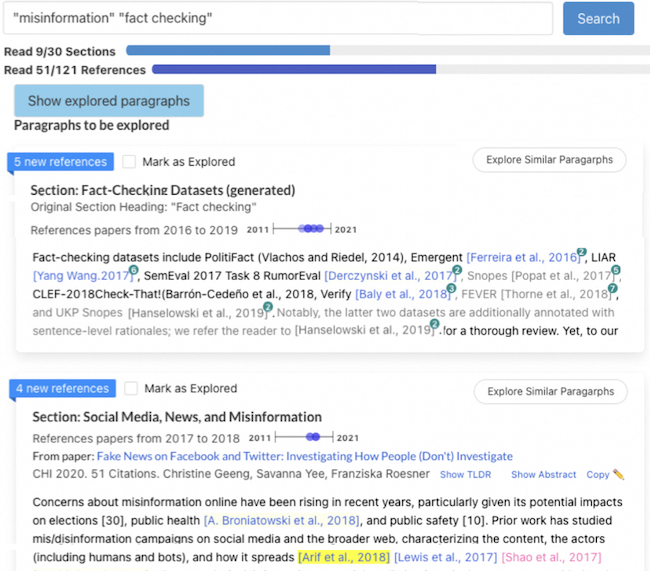
Scientific breakthroughs often rely upon scholars synthesizing many published work into broad overviews and rich insights to identify gaps in the current literature. However, survey articles require significant time and effort to synthesize and can quickly become outdated. Researchers in fast-paced disciplines also rely on the related work section to better understand the background when reading a paper. While related work sections also summarizes multiple prior work, they typically provide partial views of the larger research domain. Relatedly explore how a system in which users can quickly explore and read related work sections extracted across many papers can help scholars gain richer and more comprehensive overviews of fast-paced domains.
Abstract
Scholars who want to research a scientific topic must take time to read, extract meaning, and identify connections across many papers. As scientific literature grows, this becomes increasingly challenging. Meanwhile, authors summarize prior research in papers’ related work sections, though this is scoped to support a single paper. A formative study found that while reading multiple related work paragraphs helps overview a topic, it is hard to navigate overlapping and diverging references and research foci. In this work, we design a system, Relatedly, that scaffolds exploring and reading multiple related work paragraphs on a topic, with features including dynamic re-ranking and highlighting to spotlight unexplored dissimilar information, auto-generated descriptive paragraph headings, and low-lighting of redundant information. From a within-subjects user study (n=15), we found that scholars generate more coherent, insightful, and comprehensive topic outlines using Relatedly compared to a baseline paper list.
Presentation (SIGCHI 2023)
coming soon…
Downloads
Citation
1 2 3 4 5 6 | |
Bibtex
coming soon